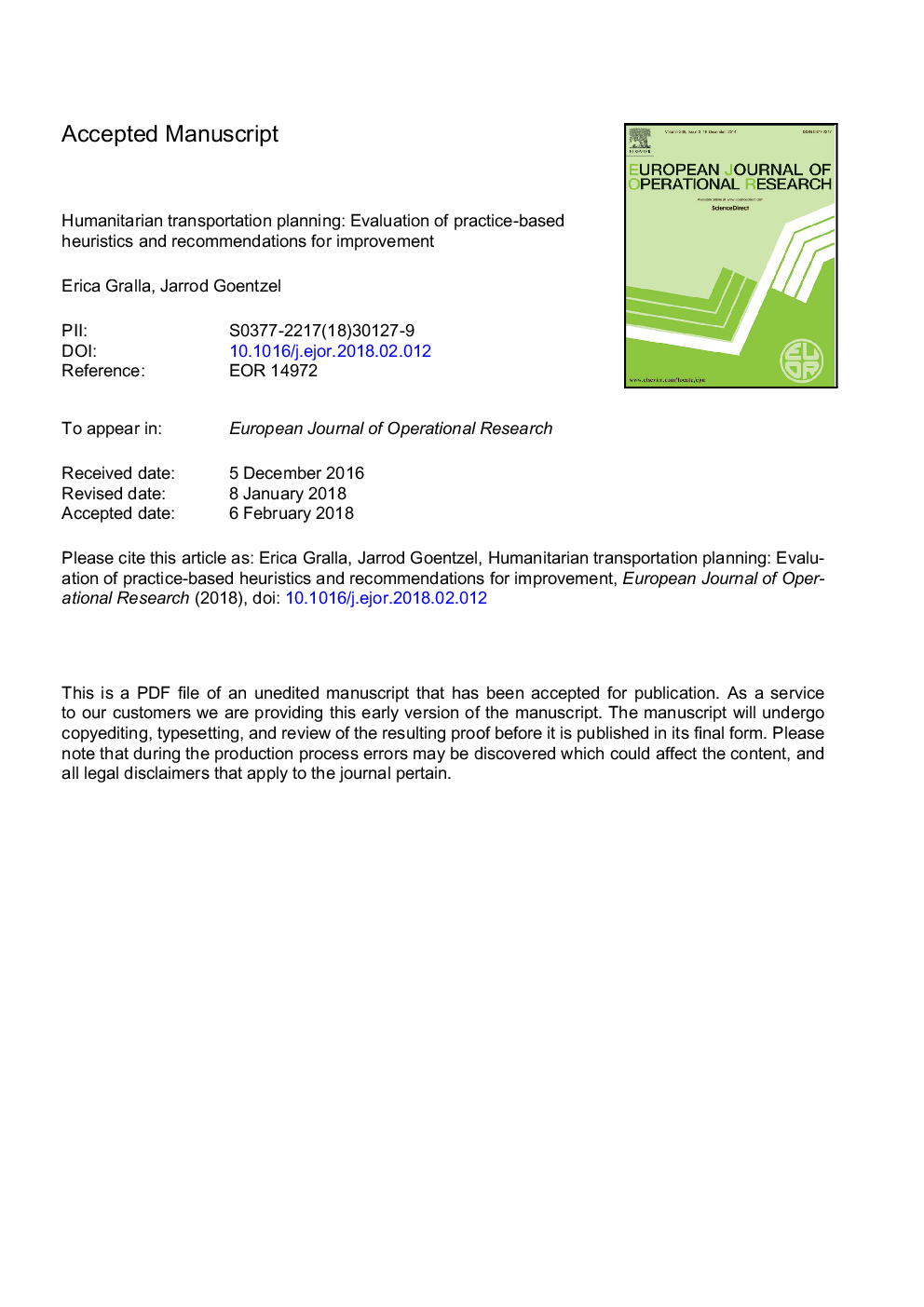| Article ID | Journal | Published Year | Pages | File Type |
|---|---|---|---|---|
| 6894687 | European Journal of Operational Research | 2018 | 32 Pages |
Abstract
Transportation bottlenecks are a common and critical problem in humanitarian response. There is a need for better planning and prioritization of vehicles to transport humanitarian aid to affected communities. Optimization approaches have been developed for transportation planning, but adoption has been limited, due in part to the difficulty of implementation. This paper develops the basis for an easily implementable decision support tool by building on current planning practices in the humanitarian sector. We draw on an observational study to describe current planning practices, then develop heuristic algorithms that represent the observed planning processes, and compare their solutions to each other and to those of a mixed-integer linear program. We identify key weaknesses to guide the development of more sophisticated heuristics or optimization models that fit with current planning practices. We also find that a simple practice-driven heuristic performs well when it prioritizes deliveries based on destination priority or distance, and we argue that automating such a heuristic in a decision support tool would maintain the simplicity and transparency to enable implementation in practice, and improve planning by saving time and increasing accuracy and consistency.
Related Topics
Physical Sciences and Engineering
Computer Science
Computer Science (General)
Authors
Erica Gralla, Jarrod Goentzel,
